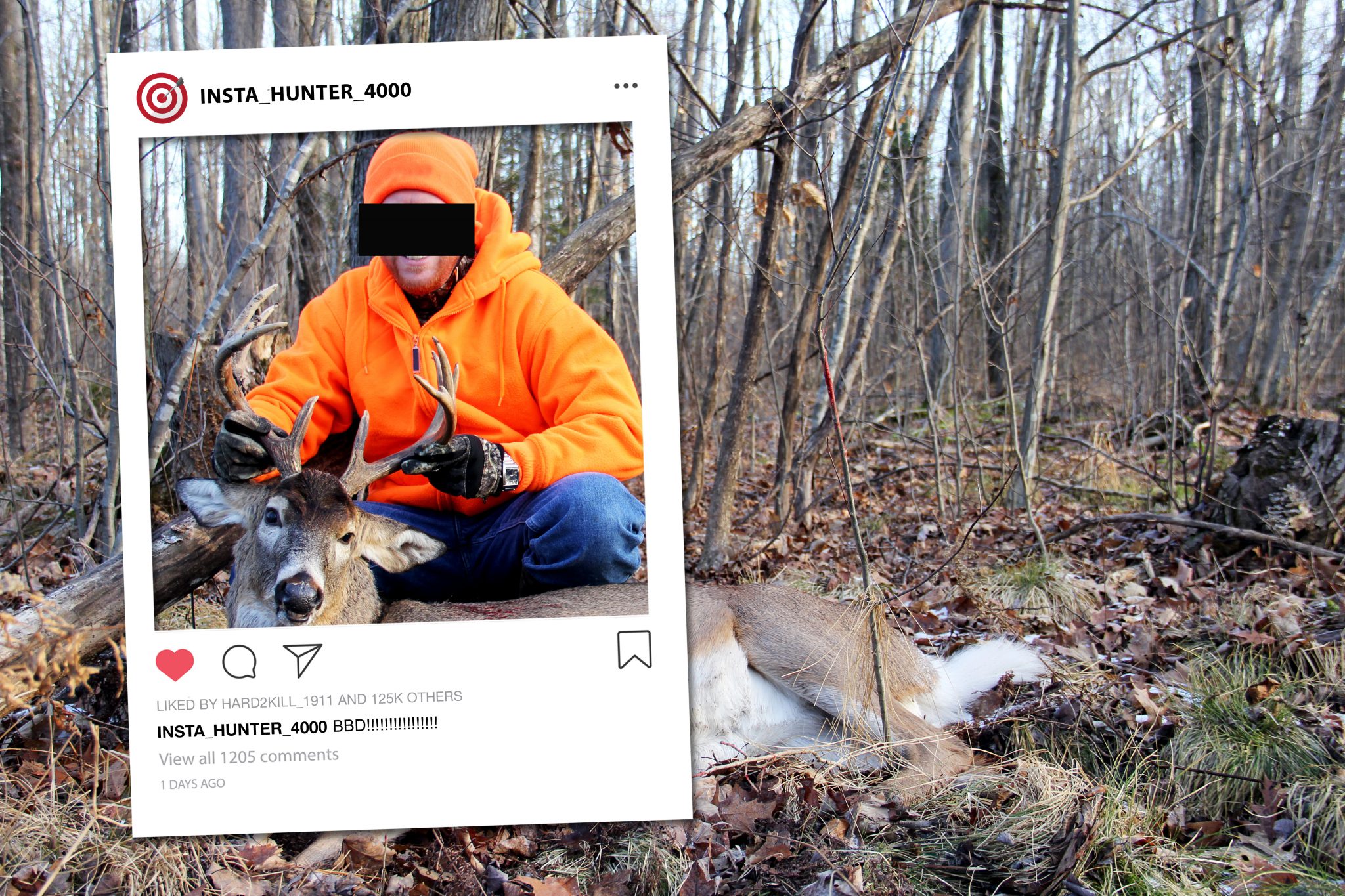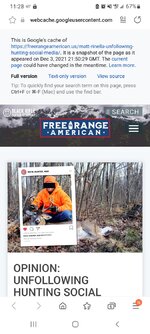I’ve seen the topic of social media and influencers discussed on Rokslide frequently, but an essay by Matt Rinella posted on the Free Range American website does a really great job of discussing just why social media and influencers have such a negative effect on hunting.
Matt makes great points about hunting pressure and hunter numbers related to social media, too.
Apparently, the essay was taken down - but you can still access it via the following link:

 webcache.googleusercontent.com
webcache.googleusercontent.com
Matt makes great points about hunting pressure and hunter numbers related to social media, too.
Apparently, the essay was taken down - but you can still access it via the following link:

Opinion: Unfollowing Hunting Social Media Will Make Hunting Better
Matt Rinella explains why he thinks hunters should shun social media and only share hunting photos with loved ones and IRL friends.
Last edited:



